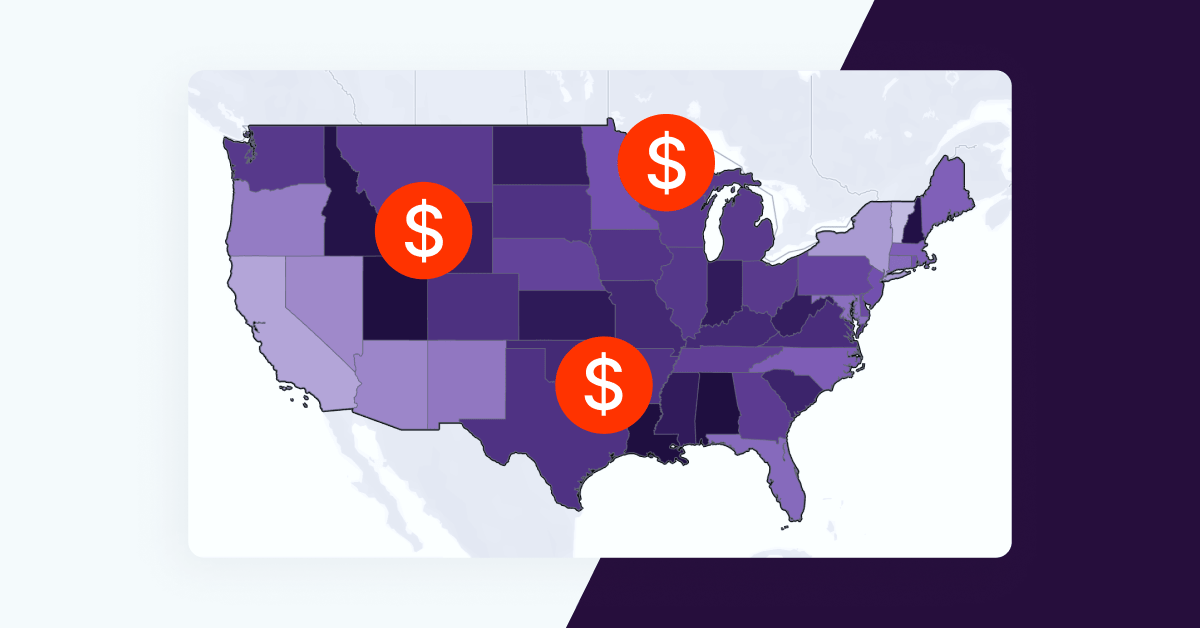At the start of 2022, Colorado was the only state in the United States to pass a pay scale disclosure bill requiring that the pay range be included on job postings — by the end of the year, nine jurisdictions had adopted similar legislation, and there is more on the horizon. These include California SB 1162 (which went into effect January 1, 2023) and New York State NY S9427A (which goes into effect in September 2023), both of which include requirements for including salary ranges in job postings.The new pay transparency laws in New York and California have national implications as these states often act as leading indicators for legislative trends across the U.S.
To gain a better understanding of the genesis of these laws, Syndio hosted two of the state Senators behind each of these bills in a recent webinar. During The Senators Speak: Understanding the NY & CA Pay Transparency Laws, Senator Monique Limón of California State, District 19 and Senator Jessica Ramos of New York State, 13th Senate District shared their insights into how each bill began and evolved, and how they’ll likely impact employers and employees.
Below we share an overview of each law and highlights from our conversation with the Senators behind them.
Meet the Senators


How the New York and California pay transparency laws lead the way in pay equity
Both laws have strengthened Equal Pay Act provisions and both include salary history bans. California was the first state in the nation to pass a mandatory pay transparency statute, while New York has pay reporting obligations for contractors. Both states are leading the way on pay scale transparency.
The Senators speak
This was a rowdy webinar, full of divergent positions. There was a lot to digest. Attendees got a first-hand view into what these legislators are thinking — and the difference between writing a law and running a compensation team IRL. We think it’s important for HR, total rewards, and legal practitioners to hear directly from the people who make the laws, even if we disagree sometimes. It is also useful to hear the knowledge gaps in how comp works on the ground, as HR practitioners have to balance nuanced concerns and considerations in their day-to-day jobs, such as trying to get pay ranges right, geo-differentials, and big changes to the minimum wage.
The target of California’s pay transparency legislation is the pay gap. Senator Limón shared that the ultimate goal of SB 1162 is narrowing the pay gap for women and people of color in California. She believes that pay transparency is an important part of the solution, saying, “We wanted to narrow the pay gap and we believed that this was part of the solution: providing salary ranges for employers. We thought this is the time for us to do this… [Salary range transparency] has become a known best practice backed by data and evidence.”
The Senators are driven by real stories from constituents. Senator Limón shared that she heard “stories by the tens, by the hundreds, by the thousands” about people experiencing pay discrimination. To her, “It’s clear this is no longer one-offs, this is truly an issue that’s systemic and needs to be addressed.” Senator Ramos says her goal is elevating the quality of life for workers in New York, having listened to stories from women’s groups and workers’ organizations of people who had been underpaid for the work they had performed.
The goal of pay transparency is better outcomes all around. Senator Limón highlighted the fact that employee trust leads to better outcomes all around — more employees want to stay and companies experience better recruiting. She shared, “At the very first stage, if you aren’t the most transparent, that’s the message you are sending to employees: You don’t value employees enough to be transparent about salary range. Many employees have been surveyed on this topic and the evidence is consistent that employees want to know what an accurate salary range is when they apply to a job.”
“To do this well, to do this right, is really a win for the employer and the employee.”
– Senator Monique Limón
Indeed, recent research shows that 4 in 5 workers are unlikely to apply for jobs posted without salary ranges. This is especially true for GenZ, with 85% reporting that they are “less likely to apply for a job if the company does not disclose the salary range in the job posting.”
Open dialogue about pay is an intended consequence of the NY legislation. Senator Ramos shared that openness about pay is a good way to ensure fair pay. She said, “One of the things I like most about this bill [NY S9427A] is that it encourages workers to talk to each other about pay. We want workers to talk to each other about pay!”
From a policy perspective, you can’t fix problems you can’t see. While CA SB 1162 adds a requirement to report the median and mean pay gap, it is not public reporting. Senator Limón shared why she thinks reporting is critical for progress, stating, “For me the principle in all of this is that [from a policy perspective] you can’t fix problems you can’t see… Are there best practices that can be replicated? Are there companies in certain sectors that [can be copied]?”
Sidebar: Contractor pay reporting
A unique component of the California law is the requirement to file a separate contractor pay report. Senator Limón said that the goal of this requirement was understanding what’s happening with contract worker pay in the face of a national trend towards contract and freelance work in the gig economy.
Contractors will likely become of increasing consideration for pay equity analysis and reporting as New Jersey just signed the law requiring pay equity between pay of contract laborers and employees performing the same role. Employers need to be thinking about strategies for contractor pay equity going forward.
In the era of pay transparency, pay explainability is the new priority
With the passing of New York and California’s pay transparency laws, the drumbeat of pay transparency continues to echo across the U.S. from coast to coast. Many employers are struggling with how to come up with ranges that make sense, especially in light of wide geo-differentials that are not going away. And now that ranges are in the open, employees are asking intensifying questions about pay: How is my pay determined? Where am I in the range relative to others? How do I move to the top of the range for my role, or to higher-paying roles? Is my pay fair?”
As pay goes public, employers must start building pay explainability into their compensation programs. This requires not only a rethink of compensation programs and philosophies from the ground up, but also a communication strategy designed for the pay transparency era. Get strategic advice and real-world examples in the Workplace Equity Communications Playbook at the link below.
The information provided herein does not, and is not intended to, constitute legal advice. All information, content, and materials are provided for general informational purposes only. The links to third-party or government websites are offered for the convenience of the reader; Syndio is not responsible for the contents on linked pages.



